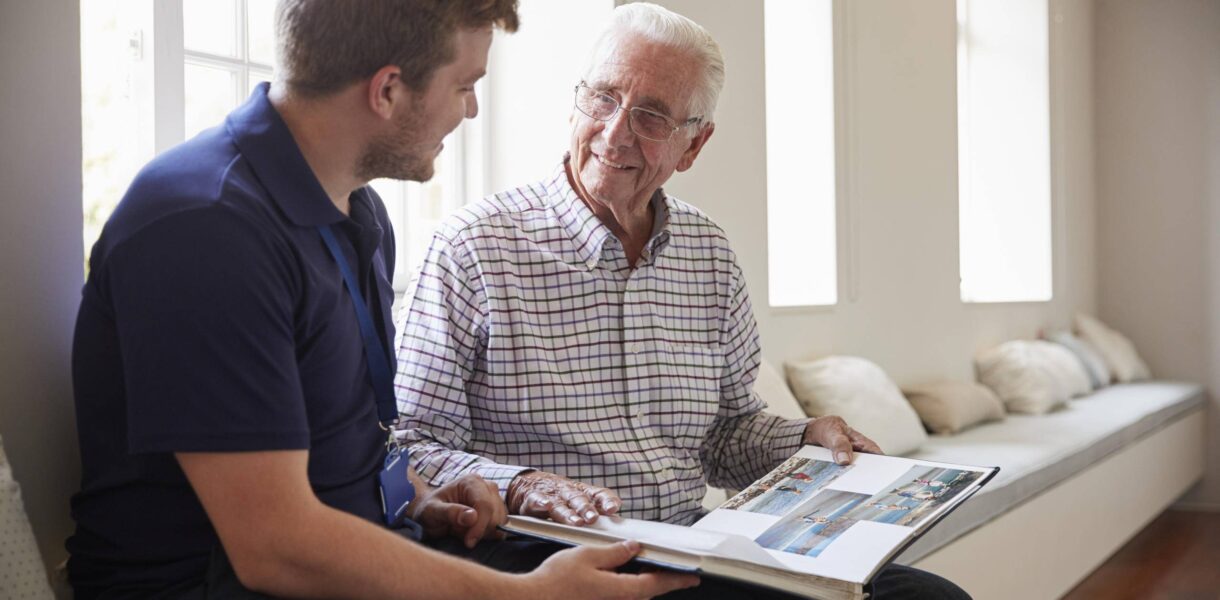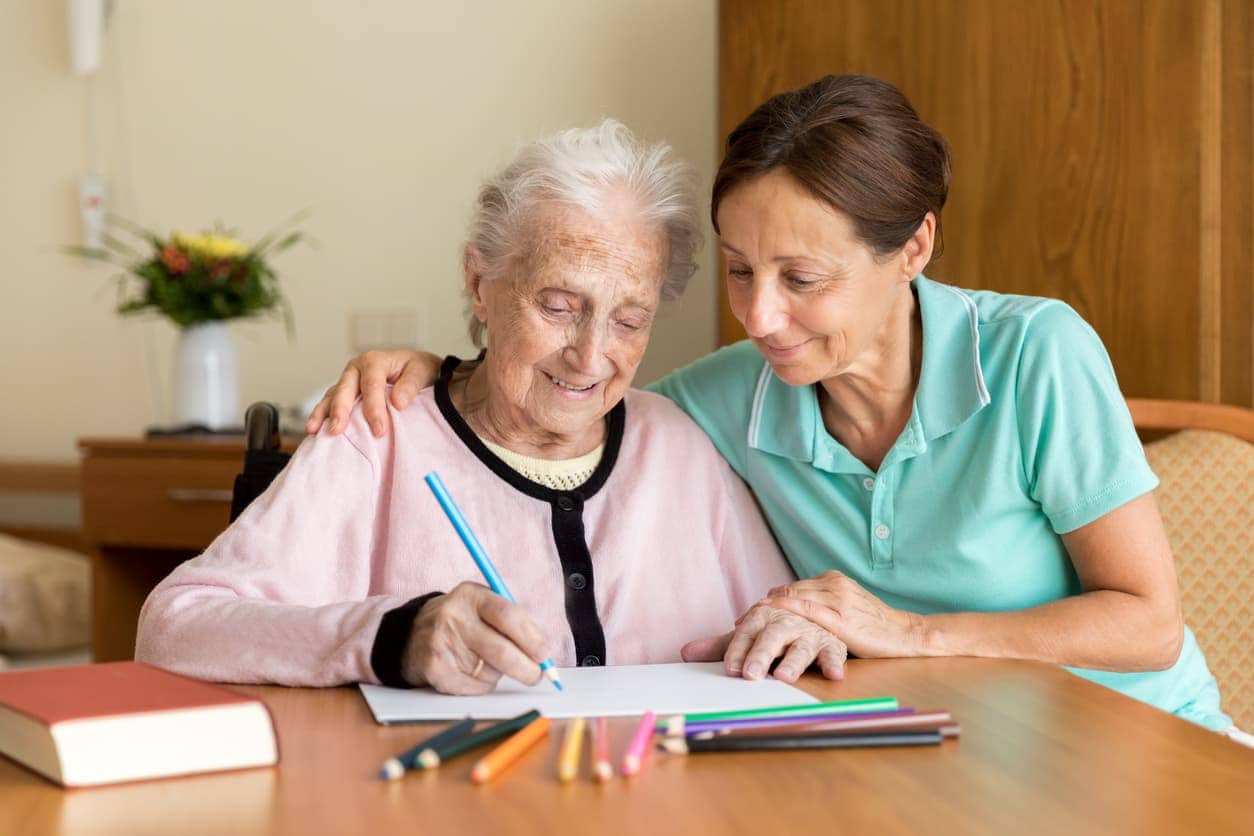
Planning Your Future After a Dementia Diagnosis
A dementia diagnosis is distressing for any family. Even when so much feels unknown, there can still be some comfort in knowing what steps to take to prepare for the days ahead. Updating vital information, proofing the home for any safety issues, and supporting your loved one’s emotional wellness are ways to get ready.
Our team at Avalon Memory Care know this prep time is a critical stage in the dementia journey. We’re here to help.
Here are some tips to get you started:
Gather Important Paperwork
Circumstances can change rapidly for any major life event, especially when there’s a dementia diagnosis. That’s why keeping necessary documents in an accessible place is essential.
Follow this guide to start building your loved one’s personal file. Consider including:
- Your loved one’s current medications, health conditions, and doctors’ names and numbers
- Emergency numbers
- Copy of health insurance card
- Hard copy of an estate will
- Location of family heirlooms
- A living will with your loved one’s wishes for their medical care
- Financial records, like current bank statements, pension info, life insurance, credit cards, loans, and 401k accounts
- House deed
- Property deeds
- Vehicle titles
- Passwords to online accounts + your loved one’s computer where they store important files
- Pet records, including the pet’s medications, vet’s name and number, groomer’s info, and meal routine
- Social media accounts
- Employment info, if they’re still working
Once you’ve gathered what you need:
- Organize everything into a properly marked folder and store in a secure location, like a fire-proof safe or safety deposit box.
- Make a few copies and entrust them to responsible family members.
- Create a digital version.
Prepare For a Medical Emergency
First responders have to work fast, and it can be a matter of life or death when they arrive. Help them do their job by leaving a red folder in a prominent place in the house. Label it “Emergency First Responders” in large, legible type.
Ensure important info is in the preparedness kit for first responders when they enter your home. Things to include:
- Medications and what conditions they treat
- Drug and food allergies
- Doctors’ names and numbers
- Emergency contacts in your family
- Where you keep medications, especially items like insulin or an EpiPen®
- List of pets or other people in the home who need care
Places first responders will look for info:
- Documents or a medication magnet attached to the fridge
- Kitchen counter
- File box or file cabinet
- Kitchen drawer or attached inside a cabinet door. Label this drawer for quick access or put a red dot on the outside of the cabinet.
Make a first-aid kit that’s front-and-center for your loved one. Add a label to each item to explain the purpose, in case they cannot remember how to use it or what to take. Include:
- Bandages
- Tissues
- Neosporin
- One dose worth of painkillers, like ibuprofen or aspirin (to prevent an accidental overdose)
- Tums, Alka Seltzer, or Pepto Bismol
- Bladder meds like Azo
- Cold medication
- Allergy meds and/or EpiPen®
- Hand sanitizer
- Antiseptic solution
- Hydrogen peroxide
- Aloe vera gel
- Calamine lotion
- Cold compress
- Face masks
- Tweezers
- Safety scissors
- Cotton balls
- Swabs
- Extra pair of readers
- Home Covid test
Check out more tips here.
Create a sign for your loved one in large type. Leave it by the phone or on the fridge with this information:
- “EMERGENCY: DIAL 911”
- Your name. For example: MARY SMITH (Daughter) xxx-xxx-xxxx
- Trusted friend or neighbor’s info. For example: Jon Matthews (Next-door neighbor) xxx-xxx-xxxx
Give Loved Ones the Info and Resources They Need
It probably feels bossy or overbearing at first, but it’s necessary to keep your loved one safe in this new reality. Finding a balance between being there for them, but also respecting their need for independent thought is tricky, but here are some ideas to get you started. Of course, every person is different and you’ll need to tailor your care based on the unique needs of your loved one.
Compose and post a “tips list” to keep them safe. Some examples:
- “Keep front door and back door locked.”
- “Don’t open the door to strangers.”
- “No cooking on the stove.”
- “Wait until Bob gets home to make dinner.”
- “Don’t give out any info to people on the phone.”
- “Don’t buy anything online or on the phone without talking to your daughter first.”
- “Call your son when you want to go to the store.”
Plan some social interaction and companionship activities for your loved one, based on their interests and what’s meaningful to their life. We’ve “planned” a few already for you:
- Have them spend time with the family dog or kitten. If possible, take walks together or play fetch out back.
- Do frequent sit-down dinners.
- Arrange flowers.
- Enjoy a trip to the Starbucks drive-thru.
- Visit with their grandkids.
- Complete a puzzle with your loved one.
- Make sandwiches together for a backyard picnic.
- Start a book club with your loved one and discuss what you’ve read.
- Coordinate a jam session if they’re musically-inclined. Sing together or bring over their musician friends for a living room concert.
- Have a dance party at home by playing their favorite music.
- Do a taste-test based on foods they enjoy: new chip flavors, varieties of cheeses, or cookie recipes.
- Schedule an in-home chair massage or manicure with your favorite therapist(s).
- Spend time each week sharing memories and even documenting them for a record of your family history. Have your loved one share stories about people in picture albums. Take photos and videos of these moments.
Take Good Care of You, Too
Dementia affects every family member, so supporting your own emotional and physical needs will also support your loved one. When you nurture your wellbeing, you can make better decisions for your parent or relative. In other words, as a caregiver, the care you give yourself is just another part of the entire treatment plan. There isn’t a one-size-fits-all approach, so it’s your choice to determine what you require during this challenging life event.
Make your mental health a priority. Dementia can be a long, laborious road and you must pace yourself when caring for someone you love. Here are a few things we recommend:
- Seek therapy from a licensed counselor or psychologist.
- Join a support group specifically for family of those living with dementia.
- Keep up with your own health-related conditions. Don’t skip doctors’ appointments, try to eat as healthy as possible, and stay active.
- Do something for yourself on a regular basis: massage, pedicure, exercise class, quality time with your dog or cat, coffee at your favorite place, an overnight stay at a peaceful hotel, an afternoon in the park, binging a new TV series.
- Ask for help from friends and family when you need it. Actually, ask them now, saying you’ll probably need their support in the future.
- Schedule special things with your loved one now. As dementia progresses, it’ll get harder to engage in some of the activities you once enjoyed together. However, there are many you can still do.
- Research the disease through literature, online video content, and by talking to others who understand.
Conclusion
Our caregiving team at Avalon Memory Care realize that your family might be new to learning about dementia. We understand that figuring it all out comes with time and experience, but we’re here to help. Through our expertise in dementia care paired with our love for seniors, we have the unique opportunity to work with your parent or relative. We want to answer your questions and guide you on this journey. Please call us at (972) 713-1383 or (888) 522-1918 to talk with our staff and get your loved one the best care you can gift to them.
See More Articles
-
Visiting Your Aging Parent With Memory Loss at Avalon Memory Care
As a loving son or daughter, you naturally want the best of care for your senior parent. The compassionate assisted living caregivers at Avalon Memory Care want you to know that while your parent is living with us, he or she will receive nothing less than respectful, loving care within our comfortable, safe, and fully-staffed
-
Celebrating New Year’s Day in Memory Care
Families often find that celebrations with their loved ones in memory care are easier when they embrace new traditions. For instance, it may not be practical to expect your loved one to stay up until midnight on New Year’s Eve. Instead, consider throwing a New Year’s Day celebration, complete with a countdown to the first
-
Hope For the Future: Emerging Alzheimer’s Research
According to the latest statistics, as many as 5.5 million Americans are living with Alzheimer’s disease, and its prevalence is only expected to rise in the next few decades. At the same time, however, research into treatments for the condition is accelerating. With every passing year, we move a little further down the road toward
Testimonials
Downloadable Resources
We Are Avalon
Discover the heart of our community; download ‘We Are Avalon’ to get to know our dedicated team and our commitment to providing a warm, family-like environment.
Transitional Care Guide
If you’re considering a transition, we’re here to help; download our Transitional Care Guide for compassionate guidance through each step of the process.
Schedule a Tour
Visit one of our 30+ campuses and experience our unique approach to memory care.












